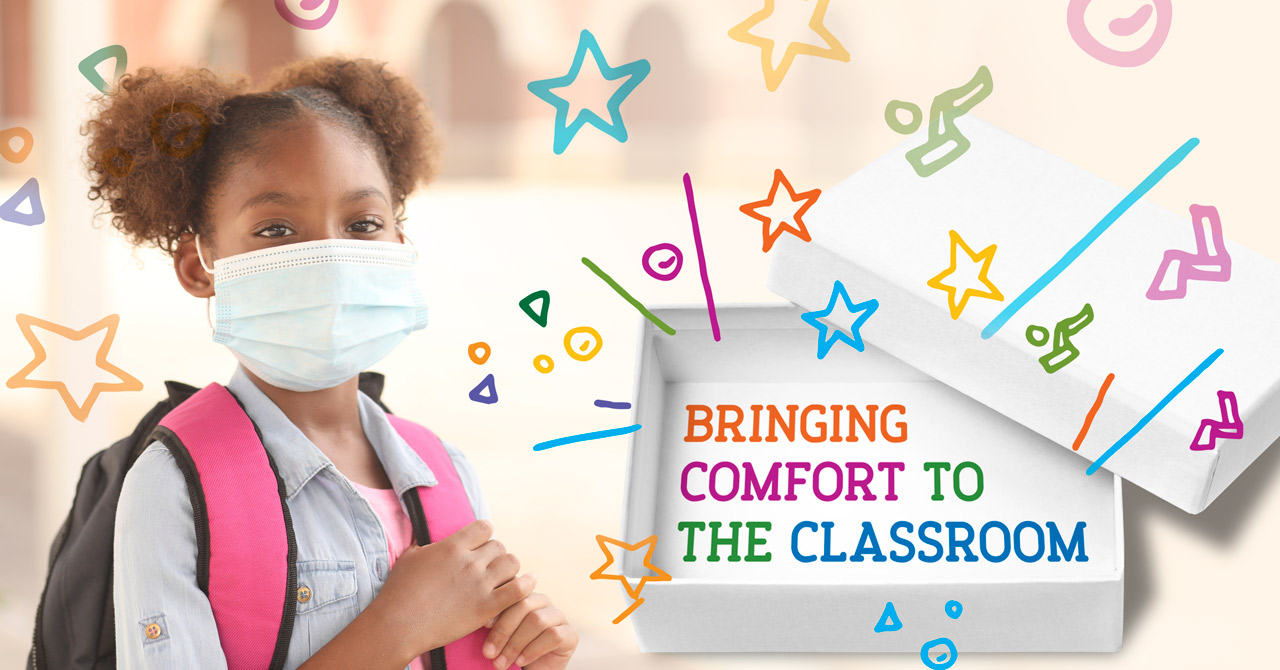With the insight of Hamilton Team Coordinator Jennifer Bordner, LPC, Primary Therapist Krista Baksany, LAC, and Senior Primary Therapist Chelsea Mazzara, LCSW, this effort began with on-site professional development presentations on anxiety, mood disorders, and dialectical behavior therapy (DBT) skills as they relate to the classroom. The response was so positive that the idea for a more tangible toolkit—classroom comfort boxes—was born.
“Kids today have so many things to remember, so we wanted to put coping strategies right at their fingertips,” explains Bordner. “The comfort boxes contain hands-on items they can access when they feel anxious, sad, or angry.”
Piloted with Princeton House child and adolescent groups to determine favorite tools, the comfort box items engage various senses and range from fidget spinners, kaleidoscopes, and stress balls to silly putty and journals.
According to Bordner, the consistency and structure of this simple approach helps young people better tolerate distress and uncertainty while practicing mindfulness and building resiliency. Use of these toolkits and related discussions in the classroom also helps to normalize mental health among this age group.
“If we’re not addressing mental health in the classroom, we’re missing a fundamental aspect of education,” she adds.
While distribution of the comfort boxes will take into account the changing shape of education this fall, the hope is to make them available to students when possible, work with teachers to assess the benefits, and continue to expand access to behavioral health resources for both teachers and students. In the meantime, Princeton House therapists are helping young patients create comfort toolkits virtually over telehealth.
“It’s important to reinforce our connection to the community in creative ways given what everyone is going through,” says Bordner. “In a time when consistency is needed, we want people to know that they’re not alone and they have our support.”
For more information, visit princetonhouse.org or call 888.437.1610.
Article as seen in the Fall 2020 issue of Princeton House Behavioral Health Today.



